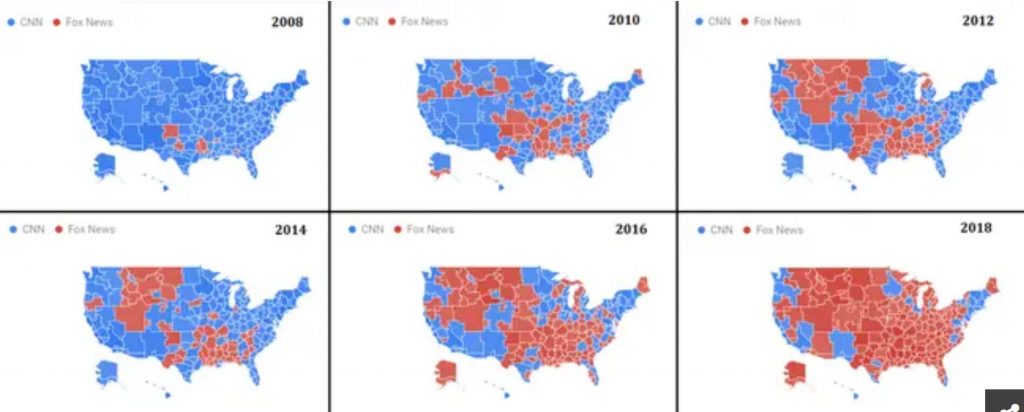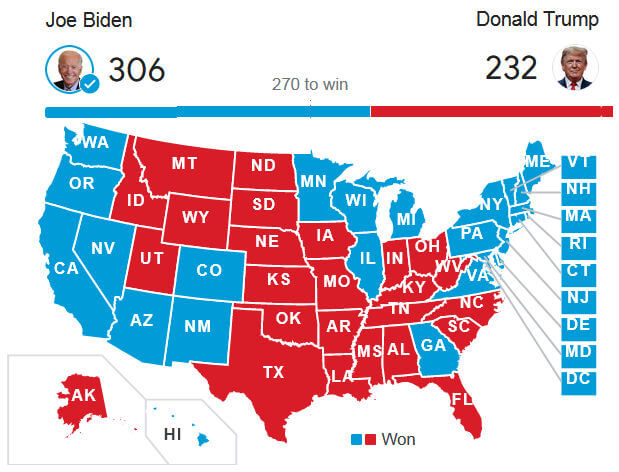
December 27, 2020
Man of the Year? / Person of the Decade?
The last decade has been like no other in modern times. We have seen ideological splits become hostile even in families; forced separations of families due to a pandemic and immigrant policies; nearly complete cessation of entire swaths of businesses; the rise of Presidents-For-Life autocrats; and the consolidation of software titans who have changed how we shop and interact with each other. So an interesting question becomes, “Who was the most important and influential person in the world over the past decade?” There are a number of metrics that would probably lead to differing conclusions, but this shouldn’t muddy the water much if changing the world is at the base of any criteria. Personally, I think that the choice is obvious and indisputable, but there is no lack of candidates.
One criterion is direct power, so the autocrats Xi Jinping of China and Vladimir Putin of Russia must be considered. As “President for Life” ruling directly over vast territories and significant proportions of the world’s population, these two are obvious choices. These two also affected many other nations by their claims of ownership of areas that were parts of other sovereign nations, such as the South China Sea and the Crimea. Both have also actively developed the new cyberwar technologies that now are used extensively beyond their borders to achieve their national policy goals. While China and Russia have significantly enhanced their outward influence, it remains to be seen how such expansion will proceed into the 2020s. Both the US and the European Union have been somewhat effective in blunting their progress so far, and it would appear that the election of Biden will be significant in this regard, at least with respect to Russia.
Certainly, the President of the US must be considered. Moreover, Donald Trump has pushed presidential power far beyond its previous limits, ranking him high in the Person of the Decade candidates. His successful candidacy demonstrated the power of a “Master Persuader” (as described by Dilbert cartoonist Scott Adams) in terms of perception over facts. Trump broke with traditions, pushed norms, and (as proven by the House) ran rampant over laws to expand the power of his presidency. Trump’s extension of family nepotism, disregard of inspector general protections and safeguards against retaliation, open solicitations of government work for his business while in office, and active demands that foreign governments intercede in domestic campaigning are all new to modern presidential behavior and should be considered as part of his legacy. Although it remains to be seen how many of these extensions of power last into and beyond the Biden administration, these form important precedents that will have to be addressed in the future.
While President Trump is certainly the prime figure in these changes, not many of the changes during his administration would have come to pass if it were not for Senator Mitch McConnell. As Senate Majority Leader, McConnell was instrumental in Trump avoiding impeachment, placing three Supreme Court Justices, and accomplishing most other legislative changes. Senator McConnell must therefore be considered a viable candidate for Person Of The Decade.
Other political figures might be considered, such as Barack Obama and Nancy Pelosi. However, Obama became president in the previous decade, and Nancy Pelosi, Adam Schiff, Robert Mueller and similar figures were ultimately ineffective in making any substantive change. Time’s Person Of The Year 2020, Joe Biden and Kamala Harris, reflects the major issue of the year, but their’s was not a landslide and only the next few years will determine if their presidency will define the Person of the 2030 Decade.
There are plenty of candidates for Person of the Decade moving beyond government heads. Arguments can be made for religious leaders who strongly influence many millions. The Pope; Dalai Lama; Muslim leaders Saudi King Abdullah bin Abdulaziz and Ayatollah Syed Ali Khamenei; and leaders of large Christian ministries have all influenced world events significantly. However, none of these individuals or their organizations effected a fundamental shift in borders or international relations in the past decade, and, as important as they are, cannot be considered as the Person of the Decade. Similarly, “Satoshi Nakamoto” the alleged creator of Bitcoin, was arguably very important, but blockchain cryptocoins haven’t yet resulted in a fundamental shift in world currency, so it is premature to consider him for the Person Of The Decade.
Individuals such as Greta Thunberg have been a major force in the recognition of global warming and a significant role model for many young activists. Although the killing of George Floyd resulted in large demonstrations in many cities over a long period of time, he could not be considered as the Person Of The Decade as he had no intention to die in this cause. However, Alicia Garza, Patrisse Cullors, and Opal Tometi, who originated the hash tag #BlackLivesMatter and who made it grow dramatically into a movement, should definitely be considered as the Person Of The Decade, considering the millions who joined in the demonstrations.
Although the smart phone became prevalent in the first decade of the 21st century, along with FaceBook and other social apps, the Arab Spring early in the second decade demonstrated how such technology can provide a springboard to political upheaval. Unfortunately, oppressive regimes found that they could control such movements by controlling the internet and have since become even more efficient and thorough in controlling access to information. Still, Mark Zuckerberg of Facebook, Jeff Bezos of Amazon, Larry Page, Sergey Brin and Sundar Pichai of Google / Alphabet have fundamentally and drastically changed how a large percentage of the world’s population finds information, visits with friends and family, and makes purchases. Clearly, these are candidates for Person Of The Decade.
While the phrase “Me Too” was coined by Tarana Burke in 2006, the hashtag and movement became large and influential in 2017 with the allegations against Harvey Weinstein, initially by Alyssa Milano. This has led to international recognition of the rights of women against unwanted harassment. Like the Black Lives Matter movement, MeToo has elevated a long standing issue into front page headlines and central awareness that has empowered many. Also, like BLM, this is a diffuse and widespread movement that does not have a central leader, so it is difficult to assign it to an individual Person Of The Decade.
In looking at candidates for Person Of The Decade, my instinct is to try to understand the Why and How as well as the Who figureheads. For example, President Trump apparently did not expect to become president, but his success was fueled by other factors. The movement to reform the federal government and “drain the swamp” gained momentum early in the decade through the Tea Party movement within the Republican Party. There also apparently came a reaction to the first Black president as evidenced by the resurgence of White Power advocates as cultivated by President Trump. But the reason for the election of the political outsider Donald Trump in 2016 probably goes beyond his “Master Persuader” charisma, personal connections and even media savvy because his candidacy needed the help of at least one major media outlet.
One significant change in the US over the past decade has been the advance of the Fox network relative to other news and entertainment venues. Although Fox has been a major network for decades, its influence in political candidate races and in political issues has dramatically increased in the last decade. The graphic below (from https://bigthink.com/strange-maps/cnn-fox-news?rebelltitem=1#rebelltitem1) shows how Fox News went from a very minor player to the dominant news source relative to the slightly leftish CNN in just ten years.

Now look at the 2020 Presidential election results (abcnews.go.com):

Obviously, there is a clear correlation, although one should be careful to not ascribe correlation to cause. Both reflect the conservative/ Republican vs. liberal/ Democrat divide in this country, as well as that for other issues.
Fox is not politically neutral, having a Republican / conservative bias, reportedly defined internally as “anti-Democrat.” Studies (e.g., https://towardsdatascience.com/how-statistically-biased-is-our-news-f28f0fab3cb3 and https://www.adfontesmedia.com/interactive-media-bias-chart-2/) show that many news sources are biased, so this is not unique. However, Fox is a major network and even interjects political messages during programs that are not news or political talk shows, which is not common among the major US networks.
This is a far cry from the days of “trusted,” independent news programs such as Walter Cronkite and Dan Rather. Although Fox is not alone in making news programs biased towards a particular ideology, they are the most blatant and effective of the major networks. Moreover, Fox interjects political messages during its coverage of football and other sports programs in short “news” briefs that go beyond what would otherwise be called ‘news.’ In short, Fox is a very effective propaganda machine.
The programming at Fox shows a very shrewd approach to persuading others to agree on a particular idea or ideology: i.e., propaganda. The choice of programming to include reality TV, entertainment contests and especially sports is well suited to attracting a following of people that might be sympathetic to the central point of view but aren’t particularly interested in news and/or politics, and that may be swayed by the demonstrative rhetoric often used. Examples include vilifying political opponents, such as Hillary Clinton and Nancy Pelosi, and reiterating unfounded allegations such as voter fraud and Congressional “witch hunts” of FBI-documented illegal activities. These were very influential and may have been decisive in the various elections (as the similar Hillary email ‘story’ in 2016 was) and provide a textbook example of effective propaganda. In a very real way, Fox could be considered as the primary contributor to the Republican Senate majority as well as Trump’s win by using propaganda techniques to focus voters on “hot” issues, while overlooking the fact that the Republicans that they put in office voted for legislation that ran counter to their economic interests. While Rupert Murdoch no longer directly runs the Fox group of companies, he is the ultimate leader overall. Based on his effectiveness in guiding the political discussion in the US and in persuading large numbers of voters and elected officials to conform to his agenda, I would nominate Rupert Murdoch as the Person of the Decade.
#ManOfTheYear
#PersonOfTheDecade